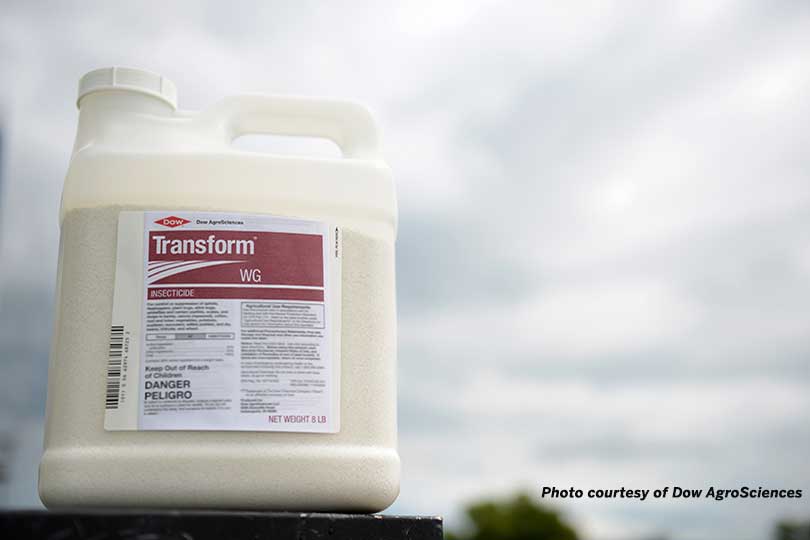The Environmental Protection Agency (EPA) is again proposing changes to the label of a popular insecticide.
According to DTN/Progressive Farmer, EPA’s proposal for Transform WG by Dow AgroSciences includes restrictions designed to protect pollinators, like bees.
If implemented, the proposed changes would be more restrictive on crops like commercial ornamentals, barley, triticale, wheat, brassica, leafy vegetables, bulb vegetables, watercress, canola, berries, tree nuts, fruiting vegetables and potatoes.
It would also restrict timing of application.
Under the new proposal, cotton would be removed from the label, according to Brant Wilbourn, associate director of Commodity and Regulatory Activities for Texas Farm Bureau.
The changes would not impact Texas sorghum growers, who may now use Transform WG, or sulfoxaflor, to battle sugarcane aphids thanks to a Section 18 emergency use exemption.
The exemption, which was approved in April, is good for one year. It includes several modifications and restrictions on the use of Transform, including a new restriction designed to prevent exposure to honeybees.
The Ninth Circuit Court of Appeals invalidated EPA’s registration of Transform after determining there was not enough information in the insecticide’s packet regarding the potential impact on honeybees.
The issue was brought to the court’s attention by a group of beekeepers and environmental groups in California.
According to the EPA, its new proposal would prohibit Transform use during bloom periods on crops that bees are attracted to.
Use would also be prohibited on crops used to grow seeds.
According to DTN, Dow AgroSciences doesn’t consider the label change to be made permanent as the company is committed to registering the product for all previous uses, including cotton and grain sorghum.
EPA’s proposal can be found here: http://bit.ly/TransformMay16_Label.
Comments may be made until June 17 at: http://bit.ly/TransformMay16.

